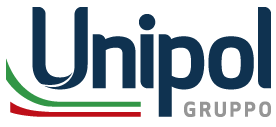Non-Financial Information
The indicators for non-financial reporting have been defined using the “Sustainability Reporting Standards” issued by the Global Reporting Initiative (GRI) as methodological reference.
The table below shows the connections between the indicators of the GRI standards and the topics of Legislative Decree 254 of 30/12/2016. It also shows how the Unipol Group’s policies and actions contribute to the Sustainable Development Goals of the UN 2030 Agenda, in line with the business model and strategies in place.
Reporting of the topics above is contained in the Group’s Annual Integrated Report, in accordance with the Guiding Principles of the International
Table of contents of Non-Financial Information
| Issue indicated in Italian Legislative Decree 254/2016 |
Italian Legislative Decree 254/2016 | Page reference in the Annual Integrated Report | SDGs* |
|---|---|---|---|
| Material topics | Art. 3, par. 1 | Page 12: "Information on the Annual Integrated Report" Page 37-39: “Materiality assessment: approach and results” |
|
| Organisation and management model |
Art. 3, par. 1a | Pages 16-17: “Activities and sectors”; Pages 18-19: “Group highlights”; Pages 47-50: “Human Capital”; Pages 51-55: "Social and Relational Capital"; Pages 64-75: "Support in implementing the 2030 Agenda and contribution to combating the climate emergency"; Pages 83-97: "Internal Control and Risk Management System" |
|
| Business policies, results, indicators |
Art. 3, par. 1b | Pages 8-9: “Letter from the Chairman and Letter from the General Manager” Pages 31-33: “Future orientation in the use of capital” Page 42: "Financial Capital" Pages 51-55: "Social and Relational Capital" Pages 60-77: "Sustainable Development: the impacts generated by the Unipol Group” Pages 78-80: "Corporate Governance" Pages 149-164: “Appendix” |
1. No proverty 3. Good health and well-being 8. Decent work and economic growth 9. Industry, innovation and infrastructure 12. Responsible consumption and production 17. Partnerships for the goals |
| Main risks | Art. 3, par. 1c | Pages 31-33: “Future orientation in the use of capital” Page 36: "The Unipol Group’s climate strategy" Pages 83-97: “Internal Control and Risk Management System”” |
|
| Energy resources, water resources, emissions | Art. 3, par. 2a Art. 3, par. 2b |
Pages 56-59: "Natural Capital" Page 97: “Sanctions” Pages 149-164: “Appendix” |
6. Clean water and sanitation 7. Affordable and clean energy 12. Responsible consumption and production 13. Climate action |
| Impact on the environment, health and safety | Art. 3, par. 2c | Page 42: "Financial Capital" Pages 51-55: "Social and Relational Capital" |
11. Sustainable cities and communities 12. Responsible consumption and production |
| Human Resource management and gender balance | Art. 3, par. 2d | Pages 47-50: “Human Capital” Pages 78-80: "Corporate Governance" Pages 99-101: "Remuneration system and incentives" Pages 149-164: “Appendix” |
4. Quality education 5. Gender equality 8. Decent work and economic growth |
| Respect for human rights | Art. 3, par. 2e | Pages 14-15: “Unipol Group Vision, Mission and Values” Pages 85-91: "Monitoring of environmental, social and governance risks ("ESG risks")” Pages 134-136: “Ethics Report” |
8. Decent work and economic growth 12. Responsible consumption and production |
| Fight against corruption | Art. 3, par. 2f | Pages 85-91: "Monitoring of environmental, social and governance risks ("ESG risks")” Pages 92-93: "Protection of personal data and cybersecurity"; Page 96: "Anti-corruption" Page 97: “Sanctions” Pages 149-164: “Appendix” |
16. Peace, justice and strong institutions |
| Reporting standard adopted | Art. 3, par. 3, 4 and 5 | Page 12: "Information on the Annual Integrated Report" Pages 137-138: “Gri Content Index” |
|
| Diversity among members of the administration bodies | Art. 10, par. 1a | Pages 78-80: "Corporate Governance" Pages 83-97: “Internal Control and Risk Management System” Pages 99-101: "Remuneration system and incentives" |
5. Gender equality |
* For greater details of the Sustainable Development Goals, reference should be made to the Glossary and to the website http://asvis.it/ for an up-to-date overview of their relationship to the business models of companies in Italy.


